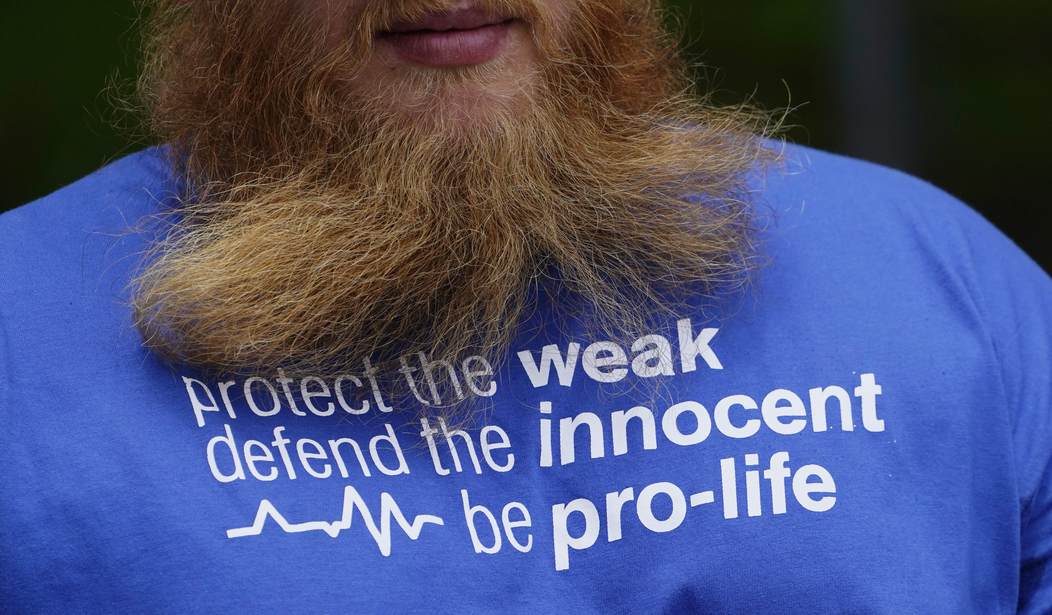Multiple congresswomen recently shared their personal stories about abortion. The media focused on three of them. But a fourth – a story about choosing life – should be told too.
On September 30, three Democratic representatives made headlines after telling their abortion stories during a House hearing on “Examining the Urgent Need to Protect and Expand Abortion Rights and Access.” Rep. Cori Bush of Missouri, Rep. Pramila Jayapal of Washington, and Rep. Barbara Lee of California delivered their testimonies. Of the three, the media led with Rep. Bush’s story.
After graduating high school at 17, Rep. Bush remembered joining a church trip to Jackson, Mississippi. That’s where, she said, she met a boy – a 20-year-old friend of a friend. They talked on the phone, they flirted, he asked if he could visit her room. Then, he raped her.
A month later, she turned 18 and missed her period. She went to a local clinic where she learned that she was nine weeks pregnant.
“How could I make this pregnancy work?” she asked. “How could I, at 18 years old and barely scraping by, support a child on my own? And I would have been on my own. I was stressed out knowing that the father wouldn’t be involved, and that I feared my parents would kick me out of the home.”
She got the abortion on a Saturday. Her experience, she remembered, was different because of the color of her skin.
“There were a few other people in the waiting room, including one other young black girl. I overheard the clinic staff talking about her, saying she had ruined her life and that’s what ‘they’ do – ‘they’ being black girls like us,” she recalled.
Recommended
For her part, she was told during counseling that “my baby would be ‘jacked up’ because the fetus was already malnourished and underweight,” she said. “Being told that if I had this baby, I would wind up on food stamps and welfare.”
According to Rep. Bush, “I was being talked to like trash, and it worsened my shame.”
“Afterwards, while in the changing area, I heard some other girls, all white, talking about how they were told how bright their futures were, how loved their babies would be if they adopted, and that their options and their opportunities were limitless,” she said. “In that moment, listening to those girls, I felt anguish. I felt like I had failed.”
When she returned home, she felt sick and “like something was missing.” Her abortion, she claimed, was the “hardest decision” but also the “right decision.”
“Even still,” she admitted, “it took long for me to feel like me again.”
“To all the Black women and girls who have had abortions and will have abortions, we have nothing to be ashamed of,” she concluded. “We live in a society that has failed to legislate love and justice for us. So we deserve better.”
In response, outlets including Buzzfeed, Elle, and Vogue called Rep. Bush’s story “powerful.” Vanity Fair, which interviewed Rep. Bush a day before she spoke, deemed her account “crucial.”
“If men were the ones who got pregnant, this would never have happened,” New York Times opinion columnist Charles M. Blow wrote in a piece reacting to the testimonies and the state of abortion in the U.S. “Men wouldn’t stand for it. Women shouldn’t either.”
No one should stand for how Rep. Bush was treated. She’s right that she and other women deserve better. No woman deserves rape. No woman deserves to be counseled differently – encouraged to consider abortion instead of adoption – because of how she looks. Every woman should feel supported enough by her family, her community, her society, to keep her baby. Every woman should know she’s not alone, should know about the resources available to her, should know she’s loved as a human person of inherent dignity and worth.
That’s what women deserve. That’s what Rep. Bush deserved.
So many women, including women filled with regret, choose abortion because they didn’t feel like they could choose life. That’s why thousands of pregnancy centers offer free support to pregnant women and new moms in need, from medical services and baby supplies to educational classes and housing.
While she didn’t make the headlines, a fourth congresswoman also shared her story related to abortion. Republican Representative Kat Cammack of Florida said she is alive today because her mother refused abortion.
“I was not supposed to be here,” she said at the same hearing. “I would not be here had it not been for the very brave choice that my mother made 33 years ago.”
When her mother – a single mom – was pregnant with Rep. Cammack’s older sister, she suffered from a serious stroke.
“It took her a year and a half to learn how to walk again, basic motor skills, and to this day, still struggles,” Rep. Cammack remembered. “Miraculously, she was able to deliver a healthy baby girl.”
Years later, she was pregnant again, this time with Rep. Cammack. The doctors warned that both she and her baby might not survive.
“You can imagine the fear, the disappointment, the struggle, the internal anguish that my mother felt as doctors told her that she needed to abort her child,” Rep. Cammack said. “You can imagine the pain that she felt when her own family told her that she needed to abort her child.”
“But because of her strength,” Rep. Cammack said, “she chose life.”
“That wasn’t an easy decision for a single mom, for a working-class mom” who had “lived a life of disappointments, of struggle, addiction.” Still, Rep. Cammack concluded, “she did something that many of my colleagues here could have done.” That is, choose life.

























Join the conversation as a VIP Member